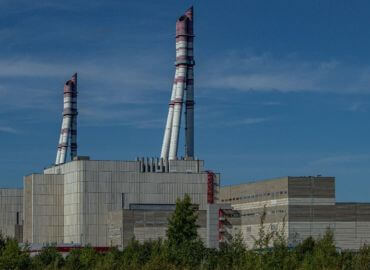- MILITARY DEVELOPMENTS
- POLITICAL DEVELOPMENTS
- HUMAN RIGHTS SITUATION AND INTERNATIONAL RESPONSE
- PROPAGANDA
MILITARY DEVELOPMENTS
Belarus Review (2023 edition, issue 9)
A weekly update on the ongoing political crisis in the Republic of Belarus prepared for you by the International Strategic Action Network for Security (iSANS).
July 3, 2023
Last week the main military activity on the territory of Belarus was linked to the construction of the military site for the PMC Wagner in Osipovichy district: A large tent camp was built on the territory of the former military camp of the 465th missile brigade of the Belarusian Armed Forces (in/hr 61732) in the village of Tsel, Osipovichy district. According to available satellite imagery, a total of around 298 tents were set up in the camp, which can accommodate about 8,000 people. So far, the available information suggests that the camp will host the mercenaries of the PMC Wagner, some of whom are to arrive in Belarus after the «march of justice,» along with the owner of the PMC Yevgeny Prigozhin. However, the main units of PMC (with weapons and military equipment) have not yet arrived in Belarus; there may be a small group of PMC representatives in Belarus to organize the deployment of the bulk of mercenaries. As of the morning of June 30, we can assume that Yevgeny Prigozhin may be in Belarus.At the same time, the Belarusian Ministry of Defense announced that the S-400 Triumph antiaircraft missile system battalion, which arrived in Belarus from Russia at the end of May 2023, was put on combat duty. The equipment was received by the 6th antiaircraft missile division of the 15th antiaircraft missile brigade located near the village of Dubrovo (Smolevichy District, Minsk Region).On June 29, the Ilyushin Il-22VPU air command post left Belarus. The aircraft took part in flight and tactical exercises, which took place on 21-23 June with the 116th Attack Aviation Base of the Belarusian Air Force. After the end of the exercise, IL-22VPU made several more flights (26 and 27 June). All in all, the aircraft stayed in Belarus for nine days.
POLITICAL DEVELOPMENTS
On June 27-29, Sviatlana Tsikhanouskaya and the delegation of the United Transitional Cabinet made a working visit to Brussels where they held meetings with the President of the European Council Charles Michel, the EU High Representative Joseph Borrel, and the Commissioner for Neighborhood and Enlargement Olivér Várhelyi and participated in a meeting of the newly established Belarus-EU consultative group. Topics discussed were the political-military situation in Belarus, the arrival of Prigozhin and the Wagner Group, the stationing of nuclear weapons, and the implications for regional security, among other things. Prior to leaving for Brussels, Tsikhanouskaya responded to Vladimir Putin’s statement on PMC Wagner’s relocation to Belarus by stating that Belarusians “do not need Prigozhin’s thugs or Russian TNW”, and encouraged Belarusians not to give up, and informed about preparations for the upcoming NATO summit in Vilnius, where strategies for making Lukashenka accountable would be discussed. International Community also responded to the information on PMC Wagner’s relocation to Belarus: Poland strengthens the security at its borders with Belarus in the fear of the increase of migrant flows and the threat of PMC Wagner deployment in Belarus by sending 500 police officers, 2,000 soldiers, and 5,000 border guards; Lithuania introduced even stricter checks for people traveling to/from Belarus and Russia; checks of laptops and mobile devices are announced by the Lithuanian State Security Department; the Minister of Interior of the country considers complete border closure with Belarus/Russia, if the threat will increase.On June 28, NATO Secretary General Stoltenberg announced that NATO is ready to defend itself against any threat posed by the move of PMC Wagner troops to Belarus as it poses a direct threat to the Eastern European member states. The topic of PMC Wagner deployment will reportedly be discussed at the July 11-12 NATO Summit in Vilnius. The U.S. responded by announcing that the situation is closely monitored in cooperation with its allies in the region and urged to avoid any speculations on the topic. Moreover, the US Treasury’s Office of Foreign Assets Controls imposed sanctions on June 28 targeting companies that have ties to PMC Wagner and are operating in UAE and Sudan.
HUMAN RIGHTS SITUATION AND INTERNATIONAL RESPONSE
On June 26, the Minsk City Court sentenced 38-year-old Kirill Klimov to four years in a general regime colony for financing «extremist» activities (Article 361-2 of the Criminal Code of the Republic of Belarus). Klimov was found guilty based on the fact that from June 2020 to May 2021 he made six donations of USD10 each to By_help, BYSOL, and Honest People charitable initiatives through the Facebook payment system. At the trial, Klimov did not deny the transfer of funds but did not plead guilty to the crime imputed to him. According to him, he donated money to help the repressed.The prosecutor asked to sentence Eduard Babaryka, the son of ex–presidential candidate Viktar Babaryka, to 10 years in a penal colony. Eduard and his father were detained on June 18, 2020, during the election campaign. Since then, he has been behind bars for almost three years – a record time for Belarus of detention without trial. According to the prosecution, Eduard Babaryka aided Lukashenka’s rivals in the presidential elections in 2020, in particular to “Tsikhanousky and other persons”, “aiding in organizing mass riots accompanied by violence, arson, destruction of property and armed resistance to government officials committed by a group of persons by prior agreement.” He is also accused of tax evasion in 2012-2022. Eduard managed two crowdfunding platforms, but their websites were blocked by the authorities and the organizations themselves were closed. It is not clear what kind of tax evasion can be incriminated while Babaryka has been in isolation since 2020. After the charges were announced, he did not plead guilty. The court will announce the verdict on July 5.On June 29, the State Security Committee of Belarus recognized the Rukh initiative as an “extremist formation”. The Belarusian authorities accuse Rukh of working for foreign special services to recruit Belarusians to destabilize the situation in the country. Yan Rudik, who lives abroad, was named as the official representative of «Rukh». Earlier, he was sentenced in absentia to 19 years in prison in the case of the Nexta media recognized in Belarus as a “terrorist organization”. The decision on Rukh was published on the website of the Ministry of Internal Affairs of the Republic, which contains a list of organizations involved in “extremist activities”. As of now, 136 organizations are recognized as extremist in Belarus. According to Article 361-1 of the Criminal Code of the Republic of Belarus, participants of such an organization face 7 years of imprisonment.On July 1, Lukashenka signed a law allowing the Belarusian authorities to ban the activities of foreign media if foreign states commit «unfriendly actions» against the Belarusian media. According to the dictator’s website, the law “is aimed at improving mechanisms for protecting national interests in the media sphere, as well as expanding tools for responding to unfriendly actions against Belarus.” The law also expands the list of grounds for canceling the state registration of mass media and restricting access to Internet resources and regulates the work of news aggregators.On June 28, the European Parliament’s Subcommittee on Human Rights discussed the situation with human rights and political prisoners in Belarus. Natallia Pinchuk, the wife of the imprisoned chair of the Human Rights Center Viasna, Nobel Peace Prize laureate Ales Bialiatski, was invited to speak at the event. MEPs were interested in how to help Belarusian political prisoners and their families and hold Belarusian authorities accountable for torture and other human rights abuses. Natallia Pinchuk expressed hope that EU states would compel international organizations, including the Red Cross, to fulfill their mission. She stated that the Lukashenka dictatorship continues to saw fear in the society by taking new hostages and deprives Belarusians of their right to national identity. Ms. Pinchuk also said that if Lukashenka hadn’t been able to destroy human rights in Belarus step by step since 1995, with the silent contemplation of the democratic world, perhaps there wouldn’t be today’s tragedy of the Ukrainian people.On June 29, the first meeting of the EU Advisory Group on Relations with Belarus was held in Brussels. The meeting of the newly created advisory body was attended by 15 people from Belarus, including the head of the United Transitional Cabinet of Belarus Sviatlana Tsikhanouskaya, and 10 from the European Union – representatives of the President of the European Council, the head of the European External Action Service and the European Commission. The topics of the discussion were the strategies of the EU and the Belarusian democratic forces, the EU’s response to human rights violations, increasing the mobility of Belarusians (visas, legalization), support for civil society and the media, and strategic communication. A similar group existed until 2020 with the participation of representatives of the Lukashenka regime but after August 2020, the EU stopped cooperation with the regime. The new Advisory Group on Relations with Belarus is thus another step towards formalizing relations between democratic Belarus and the EU.
PROPAGANDA
According to most observers, Alexandr Lukashenka is the main beneficiary of Yevgeny Prigozhin’s failed “mutiny”. Throughout the week, Belarusian propaganda praised Lukashenka and promoted his image as the one of a “peacemaker”, conciliator, and “the only security guarantor” who is capable to regulate even internal conflicts within Russia, between the President Putin and his “siloviki”. The observers speak about the strengthening of Lukashenka and the weakening of Putin.The propaganda media broadcasted Lukashenka’s story about how he settled the conflict and managed to get through to Yevgeny Prigozhin on the phone, “who had not answered any calls”, even from Vladimir Putin, Lukashenka said.Igor Tur, journalist of the state channel ONT: “Lukashenko saved Russia from political chaos”.Lukashenka took advantage of this favorable situation. In his speech after the mutiny, he claimed again a possible leadership of the Union State: “Belarusians are ready to defend“ our Fatherland from Brest to Vladivostok”. Lukashenka: “This is land, freedom and our peoples who live here. There are two states, but we have a common Fatherland.”Alexander Shpakovsky, pro-government, and pro-Kremlin propagandist: “Following the results of communication with the President (Lukashenka) in hot pursuit, it is necessary to highlight the arguments about a single East Slavic civilization and a common historical destiny.” “In the event of the failure of the peace talks, Belarus was ready to provide Russia with military support to eliminate the mutiny. The relevant units were ready to deploy in Russia.”Lukashenka: “I expect that the Wagner Group commanders will help the Belarusian Army to improve their skills. “Now there is lots of talk and chatter: “Wagner, Wagner, Wagner”. People do not understand that we are pragmatic about this. If their commanders come to us and help us (it will be good)“.Best regards,iSANS team










